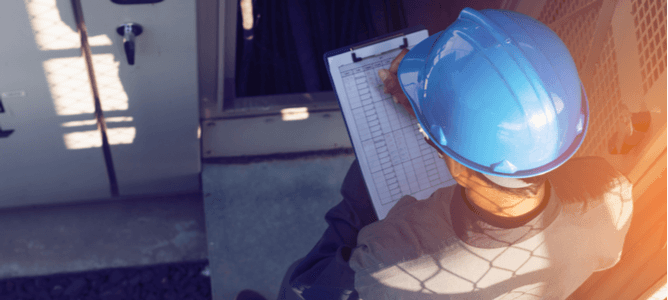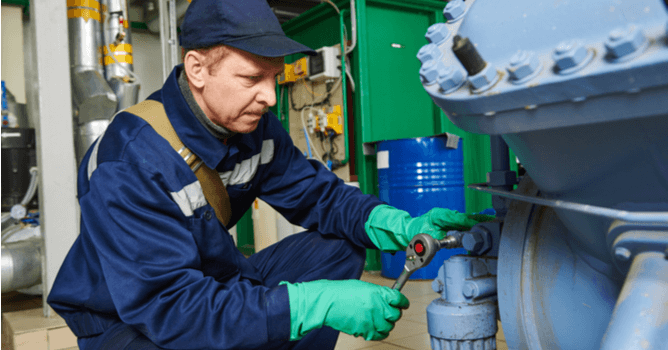
Why Your On-site Process Gas System Needs Preventative Maintenance
Preventative maintenance is the practice of inspecting, testing, and repairing equipment before it fails. This is done to reduce unexpected breakdowns and to prevent costly repairs. Let’s discuss some helpful tips for keeping your on-site process gas equipment in tip-top shape.
What is Preventative Maintenance and Why is it Important?
Preventative maintenance is the process of inspecting and maintaining equipment in order to keep it in good working condition. Air compressor maintenance aims to reduce the cost and frequency of unscheduled downtime by identifying potential problems before they occur.
Preventative maintenance can be as simple as a visual inspection or as complex as an overhaul of a piece of equipment. It’s more efficient than reactive repair because it includes routine inspections, which can identify problems before they become serious.
5 Benefits of Routine Preventative Maintenance
Preventative maintenance is necessary for any business to keep equipment running smoothly. The points below will discuss the importance of routine maintenance and how it can benefit your company.
- Increased Efficiency – The idea behind preventative maintenance is to avoid spending time making repairs. This can be inconvenient for companies, especially if it’s a large company that needs to send someone out on a service call for something that could have been fixed beforehand.
- Cost Savings – A major benefit of gas equipment maintenance is that it can save money by reducing the need for emergency repairs. It provides a way to avoid expensive replacement costs of new equipment and helps keep the company’s bottom line healthy.
- Less Downtime – Preventative maintenance is an integral part of any company’s operations. It can help reduce the amount of downtime that a company experiences while also increasing productivity.
- Improved Safety – This maintenance helps increase the safety of employees and other people who use the equipment. It also reduces downtime caused by unplanned outages. In addition, preventative maintenance will help reduce the costs of production by increasing efficiency and reducing waste.
- Environmental Benefits – Industrial air compressor maintenance also positively affects the environment because it reduces emissions from fuel consumption and industrial waste disposal.
Types of On-site Systems That Require Preventative Maintenance
The main types of on-site systems that require preventative maintenance are:
- Nitrogen Generation Systems
- Industrial Air Compressors
- Desiccant Dryers
- Compressed Air Coolers
- Air Pressure Booster Systems
- Oil-Water Separators
Preventative Maintenance Steps for a Healthier Machine & Lower Costs
This section will summarize the steps that need to be taken to avoid costly nitrogen generator repairs.
- Clean Your Unit: Clean your unit every three months with a vacuum cleaner or compressed air. This will help remove dirt and dust that accumulate in the machine’s components over time and make it more efficient.
- Change Filters: Change your filters every six months to keep air quality high during production.
- Check Valves: Check valves every year for leaks or signs of wear and tear, which could lead to an expensive repair bill down the line.
- Change the Oil: Oil should be changed every year or after every 100 hours of operation—whichever comes first.
- Replace Gaskets: Replace gaskets every two years because they can wear out over time and cause leaks or other malfunctions.
- Check for Leaks: Leaks can indicate a problem with seals or gaskets that will need to be replaced sooner rather than later.
- Inspect Belts for Wear: Belts should be inspected regularly for signs of wear or damage.
- Check Belt Tension: Belt tension should be checked at least once per month. If the belt is loose, it could cause the compressor to overheat and fail prematurely.
How Often Should You Perform Preventative Maintenance?
The frequency of a system’s preventive maintenance is dependent on the type of equipment, operating conditions, age, and application. However, the general guidelines that apply to most units say to perform regular maintenance every three months.
How to Know When Your Equipment Needs Service
While inspecting your on-site process gas system or completing your nitrogen generator maintenance checklist, it’s important to look for any signs that indicate a problem. These may include:
- Water or oil in the filter housings
- Unusual sounds or smells
- Purity level changes
- Visible damage
- Start-up delays
Contact NiGen for Help Developing a Maintenance Plan
NiGen provides field services and repairs worldwide for companies who have invested in new on-site process gas systems. Our certified technicians will ensure that your equipment is always running at its best and can be used for a long time.

